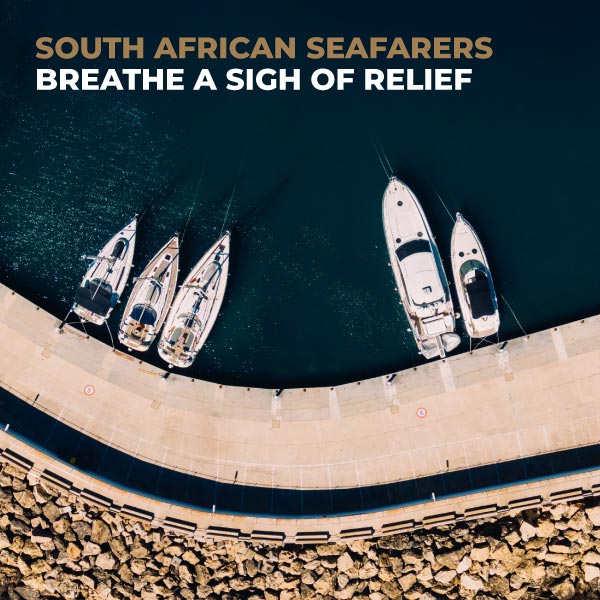SOUTH AFRICAN SEAFARERS BREATHE A SIGH OF RELIEF
Employment remuneration earned by South Africans working abroad, prior to March 2020, were fully exempted from South African taxation provided the tax payer spent more than 183 calendar days, of which 60 days are consecutive, outside of the republic over any 12 month period.
However, recent changes to the Income Tax Act no.58 of 1962 (“ITA”) under Section 10(1)(o)(ii) have capped the amount of remuneration able to be claimed as tax-exempt at R1.25 million. However, certain categories of seafarers can avoid the impact from these regulation changes provided they meet certain criteria under alternative exemptions in the ITA—and thus potentially save themselves a great deal of tax, says Nicolas Botha, Expatriate Tax Compliance Specialist at Tax Consulting.
“The traditional “seafarer exemptions” under Section 10(1)(o)(i) of the ITA are not affected by these tax regulation changes as long as the seafarer meets that particular sections requirements. Section 10(1)(o)(i) grants certain seafarers exemption from normal tax provided they are away from their home countries for more than 183 days, during the year of assessment,” he explains.
“However, those seafarers are quite narrowly defined, so it’s important to understand the law and whether it applies to you.”
Understanding the Seafarer categories
The first category of seafarers who are exempt from the R1.25 million cap are South African officers and crew who are employed on a vessel that transports people or goods internationally for reward. These individuals must be employees and not contractors, and the taxpayer must be outside of South African territorial waters for a total of 183 calendar days.
The second category applies to officers and crew on board vessels involved in prospecting, exploring or mining for any minerals from the seabed outside of South Africa for the stipulated 183 days. In this case, two important points need to be made.
The first is that only the earnings of those connected with the navigation of the vessel are exempted from this cap—for example, those employed as geologists or engineers would not qualify.
A second important point relates to how being “outside the Republic” is defined. In the case of the first exemption, the seafarer simply has to be outside South African territorial waters.
When it comes to the second, though, the definition is expanded to include those areas beyond the territorial waters which are designated by law as areas “where South Africa may exercise sovereign rights in respect of the exploration or exploitation of natural resources” (the exclusive economic zone), to quote SARS’ Interpretation Note no.34 on the exemptions.
Seek professional advice
“Increasing numbers of South Africans are signing up for work on cruise liners and superyachts because of the difficulties of finding work on land, and in order to build up a bit of capital with which to start a business when they return onshore,” Mr Botha says.
“It’s very important that they get some professional advice to enable them to correctly declare earnings and meet their SA obligations, as to not face any repercussions upon return, and verify which exemptions they are eligible for in order to maximise their earnings.”
AUTHOR

Nicolas Botha
Senior Financial Emigration Specialist



